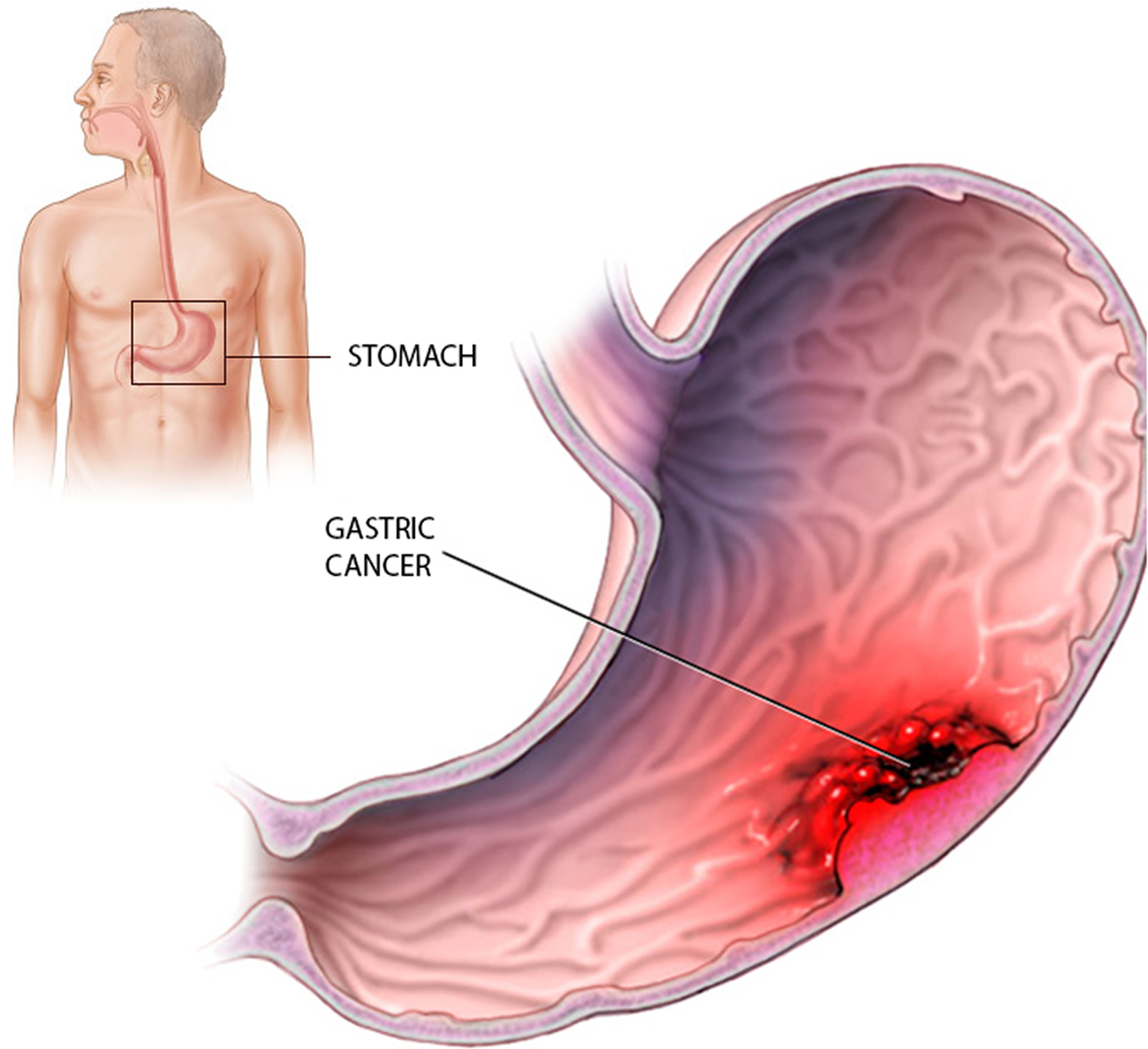Stomach Cancer

What is a Stomach Cancer?
Stomach cancer is an abnormal growth of cells that begins in the stomach. The stomach is a muscular sac located in the upper middle of your abdomen, just below your ribs. Your stomach receives and holds the food you eat and then helps to break down and digest it.
Stomach cancer, also known as gastric cancer, can affect any part of the stomach. In most of the world, stomach cancers form in the main part of the stomach (stomach body).
But in the United States, stomach cancer is more likely to affect the area where the long tube (esophagus) that carries food you swallow meets the stomach. This area is called the gastroesophageal junction.
Main symptoms of stomach cancer
There are many possible symptoms of stomach cancer, but they might be hard to spot.
They can affect your digestion, such as:
- heartburn or acid reflux
- having problems swallowing (dysphagia)
- feeling or being sick
- symptoms of indigestion, such as burping a lot
- feeling full very quickly when eating
Other symptoms include:
- loss of appetite or losing weight without trying to
- a lump at the top of your tummy
- pain at the top of your tummy
- feeling tired or having no energy
Main causes of stomach cancer
Anyone can get stomach cancer. It’s not always clear what causes it.
You might be more likely to get it if you:
- are over the age of 50
- are a man
- have a long-term infection with Helicobacter pylori (H. pylori) – read more about the link between H. pylori and stomach cancer on the Cancer Research UK website
- have certain stomach conditions, such as long-term, severe acid reflux, gastritis or a condition called pernicious anaemia, which affects your immune system
- have a brother, sister or parent who had stomach cancer
Many stomach cancers are also linked to lifestyle.
How to reduce your risk of getting stomach cancer
You cannot always prevent stomach cancer. But making healthy changes can lower your chances of getting it.
- Dotry to quit smoking
- try to lose weight if you are overweight
- wear protective clothes and masks if you work in a job where you’re exposed to harmful chemicals, such as in the rubber industry or coal mining
- cut down on how much salt you eat
- try to cut down on alcohol – avoid drinking more than 14 units a week
- try to eat at least 5 portions of a variety of fruit and vegetables every day
- cut down on how much red and processed meat you eat, such as ham, bacon and salami
Camera test
A GP or specialist will probably refer you for a test to look inside your stomach.
This test is called a gastroscopy (a type of endoscopy). It looks for any problems in your stomach, including stomach cancer.
During a gastroscopy:
- A long, thin, flexible tube with a small camera inside (called an endoscope) will be put into your mouth, down your throat and into your stomach.
- A specialist will use the camera in the endoscope to look for any problems.
- A small sample of cells (called a biopsy) may be collected during the procedure. These cells will be sent to a laboratory to check for cancer.
The test should take around 10 to 15 minutes.
It should not be painful, but you might find it uncomfortable.
You may be offered things to make you more comfortable and make the test easier, such as:
- sedation – medicine given through a small tube in your arm to help you relax
- putting you to sleep (general anaesthetic)
A gastroscopy can also help find problems in other nearby organs. Such as the food pipe (oesophageal cancer) and the first part of the bowels (small intestine).
Treatment -Stomach cancer
Stomach cancer is often treatable, but it can be difficult to treat.
The treatment will depend on:
- the type and size of the stomach cancer you have
- where it is
- if it has spread
- your general health
- It usually includes surgery and chemotherapy. It may also include radiotherapy, and treatment with targeted medicines.
The specialist care team looking after you will:
- explain the treatments, benefits and side effects
- work with you to create a treatment plan that is best for you
- help you manage any side effects, including changes to your diet
- help and support you during you recover
- You’ll have regular check-ups during and after any treatments. You may also have tests and scans.
If you have any symptoms or side effects that you are worried about, talk to your specialists. You do not need to wait for your next check-up.
Surgery -Stomach cancer
Your treatment will depend on if the cancer can be removed or not.If the cancer cannot be removed, you may have surgery to help control some symptoms of stomach cancer.
Surgery to remove stomach cancer
If stomach cancer is found early, has not spread or has not spread far you may be able to have surgery to remove it.Surgery will remove part or all of the stomach. They may also need to remove parts of other organs around the stomach.Recovery from surgery to treat stomach cancer can take a long time. The specialist team looking after you will discuss all the benefits and side effects.Surgery to help control the symptoms of stomach cancer.You may need surgery to relieve a blockage in the stomach. This helps food pass through your stomach more easily.The aim of this surgery is to help improve your symptoms, not to cure the cancer.
